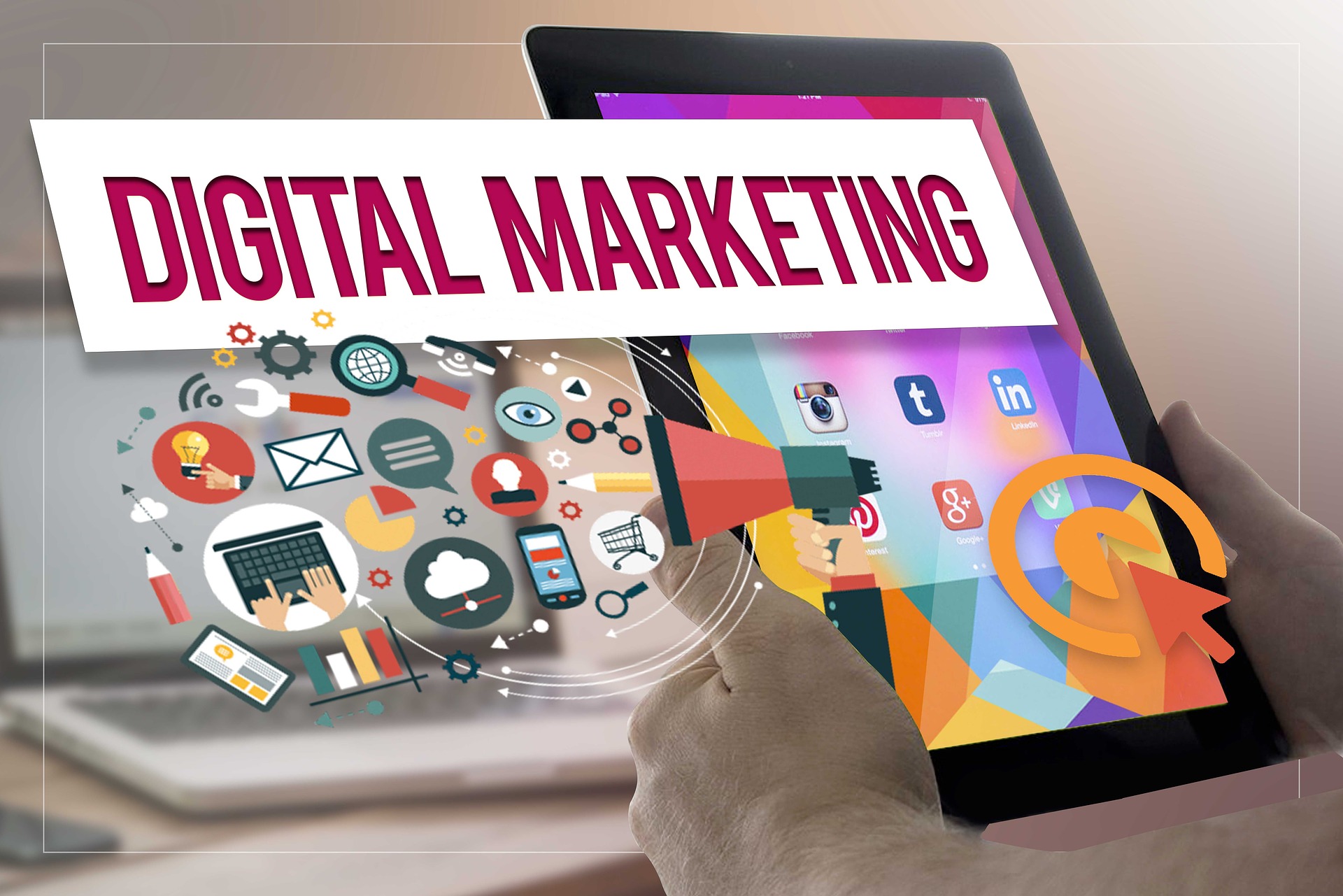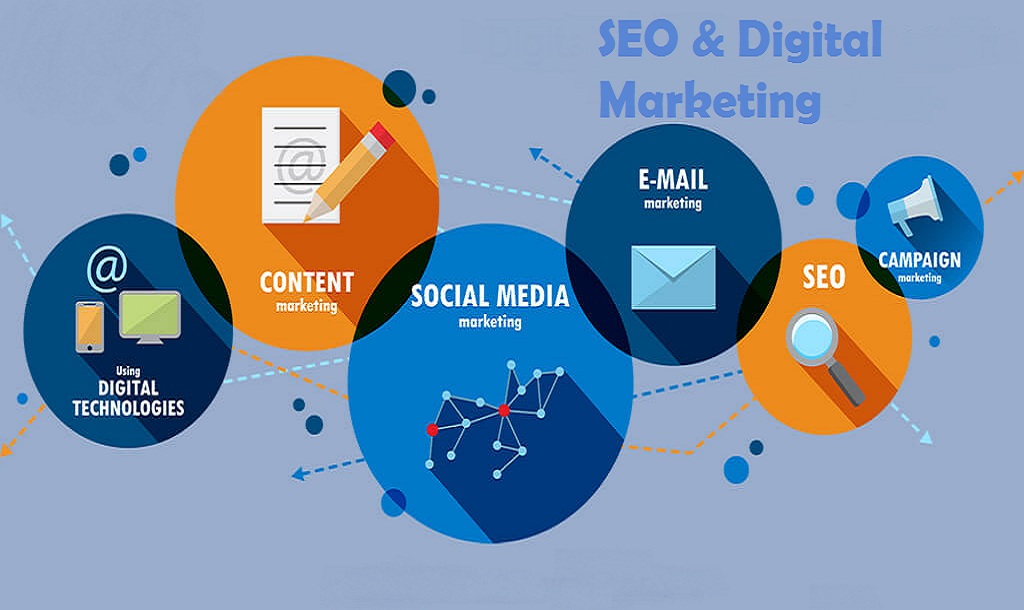Benefits of Digital Marketing in today’s rapidly evolving business landscape, digital marketing has emerged as a cornerstone of success for organizations striving to thrive in a competitive market. This article explores the transformative power of digital marketing strategies and their pivotal role in enhancing business growth, customer engagement, and overall brand presence. From cost-effectiveness to global reach and measurable results, digital marketing offers a plethora of advantages that traditional marketing methods simply cannot match. By embracing digital strategies, businesses can leverage technology to connect with their target audience more effectively than ever before benefits of Digital Marketing.
Understanding Digital Marketing
Digital marketing encompasses a wide range of online strategies and tactics designed to reach and engage target audiences through digital channels such as search engines, social media platforms, email marketing, and more. Unlike traditional marketing, which relies heavily on physical media and offline interactions, digital marketing leverages the internet and digital technologies to create personalized experiences and drive measurable results.

Key Benefits of Digital Marketing
1 Cost-Effectiveness
Digital marketing offers substantial cost advantages over traditional marketing methods. Digital campaigns often require lower investments and can reach a broader audience at a fraction of the cost of traditional advertising channels like television or print media. This affordability makes digital marketing accessible to businesses of all sizes, from startups to multinational corporations, enabling them to compete on a more level playing field.
2 Global Reach and Accessibility
Unlike traditional marketing, which is often limited by geographical boundaries, digital marketing allows businesses to reach a global audience instantly. Through online platforms and tools, businesses can connect with potential customers across different countries and time zones, expanding their market reach exponentially. This global accessibility not only increases brand awareness but also opens up new opportunities for growth and expansion into international markets.
3 Targeted Marketing
Digital marketing enables precise targeting of specific demographic groups, interests, and behaviors, allowing businesses to tailor their messages and campaigns to resonate with their ideal customers. Techniques such as search engine optimization (SEO), pay-per-click (PPC) advertising, and social media targeting enable businesses to deliver personalized content that addresses the unique needs and preferences of their audience segments. This targeted approach enhances engagement and conversion rates, driving meaningful interactions and fostering long-term customer relationships.
4 Measurable Results
One of the key advantages of digital marketing is its ability to provide detailed analytics and measurable results in real-time. Unlike traditional marketing methods, which can be challenging to track and evaluate, digital campaigns offer comprehensive insights into metrics such as website traffic, conversion rates, engagement levels, and return on investment (ROI). This data-driven approach allows businesses to optimize their strategies continuously, identify areas for improvement, and allocate resources more effectively to achieve their marketing objectives.
5 Personalization and Customer Engagement
Digital marketing empowers businesses to create personalized experiences for their customers through targeted messaging, customized offers, and interactive content. By analyzing consumer behavior and preferences, businesses can deliver relevant and timely communications that resonate with individual customers on a personal level. This personalized approach not only enhances customer satisfaction but also increases brand loyalty and encourages repeat business.
6 Integration and Synergy
Digital marketing strategies can be seamlessly integrated with other business functions, such as sales, customer service, and product development, to create a cohesive and unified brand experience. By aligning marketing efforts with overall business goals and objectives, organizations can amplify their impact and maximize the effectiveness of their campaigns. This synergy fosters collaboration across departments, enhances operational efficiency, and drives sustainable growth and profitability.
FAQs About Digital Marketing
1 What is digital marketing?
Digital marketing refers to the use of online channels and technologies to promote products, services, and brands to a targeted audience. It encompasses a wide range of tactics, including search engine optimization (SEO), social media marketing, email marketing, content marketing, and pay-per-click (PPC) advertising.
2 How does digital marketing benefit businesses?
Digital marketing offers several advantages for businesses, including cost-effectiveness, global reach, targeted marketing, measurable results, personalization, and integration with other business functions. These benefits enable businesses to connect with their audience more effectively, drive engagement and conversions, and achieve their marketing objectives with greater efficiency.
3 What are the different types of digital marketing strategies?
Examples of digital marketing strategies commonly used are
Search engine optimization (SEO)
Pay-per-click (PPC) advertising
Social media marketing
Content marketing
Email marketing
Affiliate marketing
Influencer marketing
Online PR and reputation management
Each strategy serves a unique purpose and can be tailored to suit different business goals and target audiences.
4 How can businesses measure the effectiveness of their digital marketing campaigns?
Businesses can measure the effectiveness of their digital marketing campaigns through various metrics and key performance indicators (KPIs), such as:
Website traffic and visitor behavior (e.g., bounce rate, time on site)
Conversion rates (e.g., leads generated, sales closed)
Engagement metrics (e.g., likes, shares, comments)
ROI and cost per acquisition (CPA)
Customer retention and lifetime value (LTV)
By analyzing these metrics regularly and adjusting their strategies accordingly, businesses can optimize their digital marketing efforts and achieve better results over time.

Conclusion
Benefits of Digital Marketing in conclusion, digital marketing represents a paradigm shift in how businesses approach marketing and customer engagement in the modern era. By leveraging digital channels and technologies, businesses can unlock a myriad of strategic advantages, from cost-effectiveness benefits of Digital Marketing.
